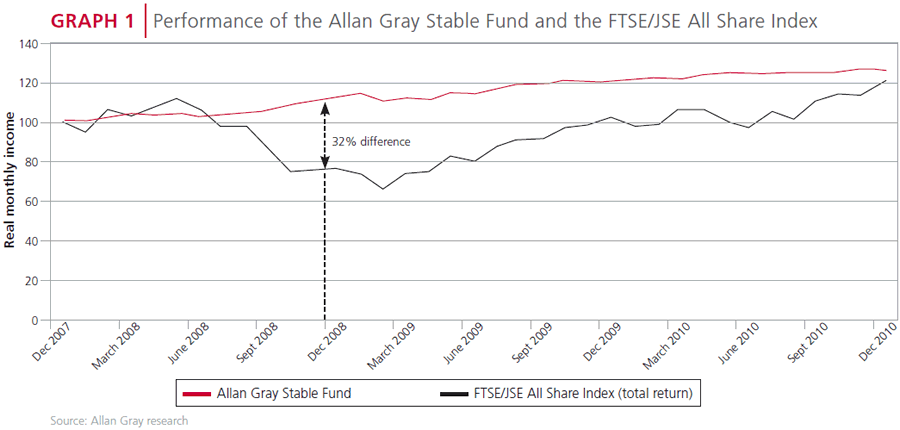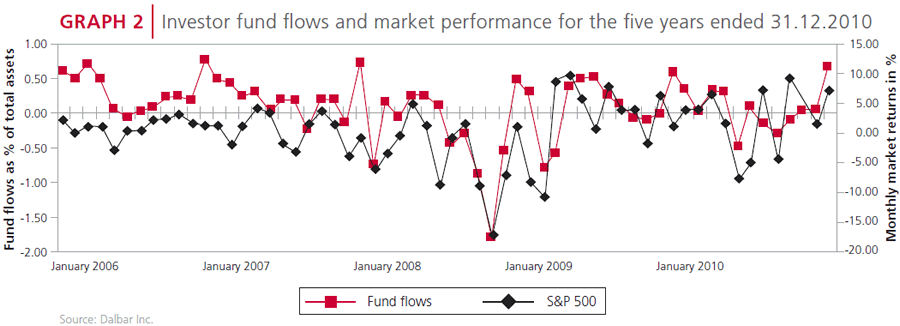Rob Formby suggests five questions you may want to ask regarding your personal investments. Every person's situation is unique, so the list is not exhaustive. It is more a starting point to get you thinking about current and future investments.
1. Do you know what you want to achieve?
The purpose of an investment is very specific to individuals and their particular circumstances. Perhaps you wish to build up investments for a future date, or live off your investments, or a combination of both. Alternatively, you may be investing for specific needs such as your child's education, building up capital to buy a business, or developing an inheritance for future generations. If you are clear about your purpose, it is easier to decide on your time horizon, return objectives and your ability to tolerate uncertainty. Ultimately, having an objective allows you to plan; without a plan it is less likely that your long-term purpose will be achieved.
If you need to draw an income from your investment the question that arises is how much can you comfortably draw in a sustainable way.
Sustainability is related to the amount of income drawn (as a percentage of the investment) and the growth of the investment. The higher the income drawn, the shorter the time that the investment will sustain this income. And the higher the return, the longer the investment will sustain the income. However, the potential for higher returns leads to more risk, which could negatively affect the investment. (You can read more about asset allocation in living annuities in Richard Carter's piece.
2. Are you using the right investment manager(s)?
If you choose to invest in unit trusts instead of, for example, directly into shares, you need to be comfortable with the investment manager's philosophy and fees and trust that your manager will accomplish what you want. Different investment managers have different ways of investing (philosophies) and they follow these with different resolve. If you understand and buy into a certain approach to managing money, the likelihood is that your investing behaviour will be aligned with the investment manager's, improving your chances of achieving investment success.
DISCIPLINED ADHERENCE TO AN INVESTMENT STRATEGY IS THE SINGLE MOST IMPORTANT FACTOR IN GENERATING SUPERIOR RETURNS OVER THE LONG TERM
Investment managers charge fees for managing your investment. You need to understand these and be comfortable with them. Allan Gray adheres to the principle that fees should be transparent and that, where possible, fees should be linked to performance.
You need to trust your investment manager. Trust has a number of facets, you need to trust (1) in the competence of the manager to deliver returns, (2) the manager's ethics and (3) that the manager will stay in business.
At Allan Gray we offer a simple range of unit trusts as personal investments, as we believe they allow easy and affordable access to financial markets. For a relatively small amount of money, our nine unit trusts provide access to experts, skilled in managing money and backed by a highly experienced research team.
There are broadly two types of unit trusts at Allan Gray – solution unit trusts and building block unit trusts. Solution unit trusts offer investors exposure to a variety of assets normally including equities, bonds, cash and property. Because you invest in a single unit trust, you don’t have to worry about how to divide your exposure to different asset classes; the unit trust manager does it for you. Building blocks contain individual asset classes, such as equities or bonds. You can use these as building blocks to create your own portfolio.
3. Does your investment adequately balance risk vs. return?
Higher returns are generally associated with more risk. If risk was not a consideration, every person would opt for the higher returns. However, risk is a real issue and manifests itself as follows:
1. If your investment is ill-conceived or if you pay too much for an investment you could suffer a permanent loss of capital.
2. Performance could be volatile which, depending on your switching behaviour, may cause you to underperform the funds that you are invested in.
3. The higher returns that you envisage may not materialise.
You can assess the sensitivity that you have for each of these factors by answering these questions:
- Would short-term price movement affect your discipline as a long-term investor? If you had an investment into equities (as represented by the JSE All Share Total Return Index) the market crash in 2008 would have seen the value of this investment drop by 45%. Even for those equity investors who were fully prepared for this level of risk, it was an extremely uncomfortable and uncertain time with a high risk of losing nerve, and yet also a very bad time to sell.
- Will you need to withdraw money in the short term? Graph 1 shows the performance of the Allan Gray Stable Fund and the FTSE/JSE All Share Index (ALSI). If you needed to sell your investment after year one (end 2008) the volatility gives rise to a large difference between the Stable Fund and the ALSI. In addition, the three-year return of the ALSI to the end of February is 4.6% annualised, which is comparable to the 7.2% annualised for the Allan Gray Stable Fund. While the example is extreme, the effects of volatility associated with the timing of the buy and sell, can be large and long lasting. One thing to consider is emergency funding. Investments take a long time to build up and may not be sufficient to cover the unforeseen. If catastrophe strikes (e.g. you have a medical emergency, your house burns down etc.) and you are inadequately insured against this, the effects can tear a hole in your investment objectives.
- How certain do you need to be of achieving your desired returns? Although more risky instruments have a higher potential for returns, these returns are not guaranteed. For example, although the US equity market generally has higher potential for returns than the bond market, an investor in the US equity market from 2000 to 2010 would have earned less than an investor in the US bond market. If you need to be certain of your investment growth you should potentially look at less risky, more predictable options. In addition, the South African equity market has had a fantastic decade, outperforming most indices. There is a risk that investors are basing their current expectations on past information.
4. Is your own behaviour undermining your investment return?
In most studies comparing unit trust returns to returns achieved by the average investor within the unit trust, investor return is lower. The difference is generated when investors make poor decisions on when to buy and sell.
Graph 2, courtesy of Dalbar Inc. and based on a US study, shows how flows out of a unit trust are at their greatest when the performance is lowest. Since this is actually the worst time to sell, and therefore locks in the loss, this is a good example of how investment decisions based on emotion, rather than reason, negatively impact an investor's return. The effects of this were estimated to give rise to a difference in returns in excess of 5%.
Because markets can be volatile over the short term, investors are strongly encouraged to invest for the long term. At Allan Gray we believe that the disciplined adherence to an investment strategy is the single most important factor in generating superior returns over the long term.
5. Are you invested in the right product?
When deciding which product best suits your needs, you should consider factors such as when you will need to access your investment, how your investment will be taxed and what happens to your investment in the event of your death. The product (sometimes referred to as the product wrapper) is essentially an overlay on the unit trusts that you choose for investments. For example, you can invest in a retirement annuity and within this product the investments are in unit trusts.
Different products fulfill different needs:
A unit trust: Allows you to use a relatively small amount of money to buy 'units' of a fund that invests in a wide range of shares, bonds and other assets. You can access your money at any time.
A retirement annuity fund: Allows you to save for retirement in a tax-efficient manner, but does not generally allow withdrawals before you retire.
A preservation fund: Allows you to preserve and grow your existing retirement benefits.
A living annuity: Allows you to draw an income from your investment after you retire.
An endowment policy: Allows you to grow your money and benefit from an estate-planning tool, but restricts withdrawals and additional contributions (suitable for higher income earners).
Often legislation limits your choice of products. For example, if you want to preserve your retirement savings when leaving your employer, you can only transfer your money to either a retirement annuity or a preservation fund. And your choice of products can make quite a big difference to what will happen when you die, especially if you have dependants:
- Unit trusts are like any other asset and should be included in your comprehensive will. Remember that joint accounts are frozen by South African law upon your death until your estate is wound up.
- Living annuities and endowments are technically forms of life insurance. As such, they are passed on to your nominated beneficiaries. Living annuities do not attract estate duty and do not need to wait for your estate to be wound up. Endowments will form part of your estate.
- Your retirement annuity investments are technically a type of pension fund. When you die, the trustees of all of your pension fund investments are not bound by your will and they have to consider the needs of your dependants before nominated beneficiaries. This can take some time.
If you are unclear about any of the questions above, if you lack the knowledge or confidence to manage your investments, if you lack the discipline to save, if you are worried about your investments in the event of your death or if you would like to explore alternatives to the way you currently invest, then it would be worthwhile seeking independent financial advice. Independent advisers can assist you not only in making investment decisions, but with planning your investments and making some of the choices that have been mentioned above.

